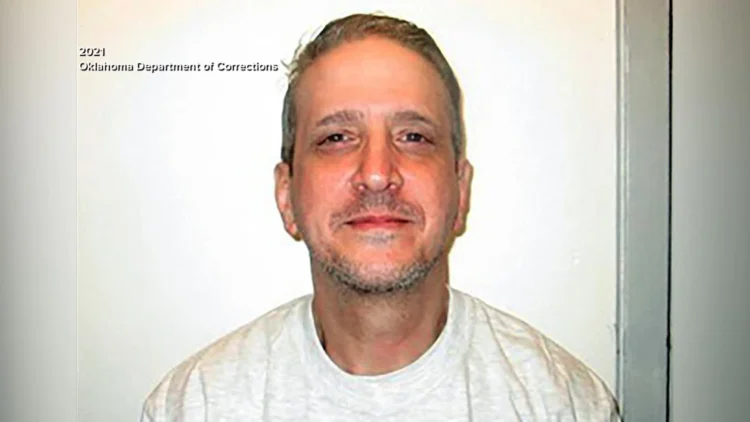By Aaron Miller-
The United States Supreme Court has agreed to take up the case of Richard Glossip, a death row inmate in Oklahoma, after the state’s attorney general raised concerns about the fairness of his trial.
The decision comes after Glossip, 60, (pictured)narrowly avoided execution three times, with the latest intervention from the Supreme Court just days before his scheduled execution.
Oklahoma Attorney General Gentner Drummond, who previously supported granting clemency for Glossip due to trial-related issues, has now taken the matter to the highest court.
Drummond cited two independent reviews that recommended a new trial for Glossip, expressing concerns about the testimony of a key witness and withheld evidence.
The state’s Pardon and Parole Board, however, voted against recommending clemency for Glossip.
The case revolves around the conviction of Glossip in the 1997 killing of motel owner Barry Van Treese. Glossip’s initial conviction was reversed due to ineffective assistance of counsel, but he was later convicted again primarily based on the testimony of his co-defendant, Justin Sneed.
Sneed, who admitted to robbing and killing Van Treese, implicated Glossip, alleging he had agreed to pay him $10,000 for the crime. Sneed received a life sentence.
Glossip has steadfastly maintained his innocence, with his attorneys arguing that his conviction is a “grave miscarriage of justice.”
The Supreme Court will now determine whether the due process of law requires a reversal of Glossip’s conviction, given the alleged errors in the trial that the state no longer seeks to defend.
Notably, Justice Neil Gorsuch recused himself from the case, likely due to his past role on the U.S. Court of Appeals for the 10th Circuit, covering Oklahoma.
Glossip’s attorney, John Mills, asserted, “Mr. Glossip is innocent of the murder for which he faces execution,” emphasizing the need to correct the Oklahoma Court of Criminal Appeals’ refusal to accept the state’s acknowledgment of error.
The case has attracted widespread attention, drawing support from notable figures such as actress Susan Sarandon and reality TV star Kim Kardashian. Both used their platforms to advocate for Glossip, urging the public to contact the pardon board and Oklahoma Governor Kevin Stitt to reconsider the case.
The focus is not only on Glossip’s fate but also on broader questions about prosecutorial misconduct and the reliability of the death penalty.
The court’s decision could have far-reaching implications for the justice system, emphasizing the need for a thorough and fair examination of the evidence and circumstances surrounding Glossip’s conviction.

